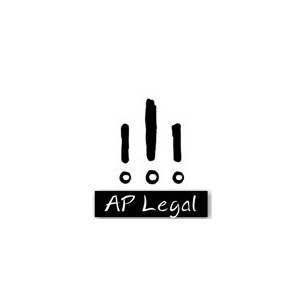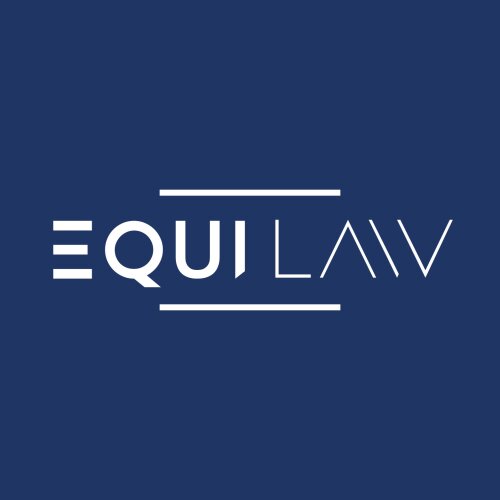Best Debt & Collection Lawyers in Suva
Share your needs with us, get contacted by law firms.
Free. Takes 2 min.
List of the best lawyers in Suva, Fiji
About Debt & Collection Law in Suva, Fiji
Debt & Collection law in Suva, Fiji governs the legal procedures and regulations related to the collection of debts owed by individuals or businesses. It includes the rights and responsibilities of both debtors and creditors. Understanding the basics of Debt & Collection law is crucial when dealing with debt-related issues to ensure your rights are protected.
Why You May Need a Lawyer
There are several common situations where seeking legal help in Debt & Collection matters in Suva, Fiji may be necessary:
- Debt collection actions: If you are facing legal action or harassment from creditors attempting to collect debts, a lawyer can guide you through the process.
- Debt negotiation: A lawyer can assist in negotiating with creditors on your behalf to establish affordable repayment terms or potentially reduce the amount owed.
- Credit disputes: If you believe there are errors in your credit report or you have been a victim of identity theft, a lawyer can help you dispute inaccurate information and safeguard your creditworthiness.
- Bankruptcy: If you are overwhelmed by debt and considering filing for bankruptcy, a lawyer specializing in Debt & Collection law can provide expert advice and assist you throughout the bankruptcy process.
- Legal defense in debt-related cases: If you have been sued by a creditor or debt collection agency, a lawyer can defend your rights and represent you in court.
Local Laws Overview
Several key aspects of local laws in Suva, Fiji that are particularly relevant to Debt & Collection include:
- The Bankruptcy Act: This act governs bankruptcy procedures and provides guidelines for debtors and creditors involved in bankruptcy cases.
- The Debt Collection (Harassment) Act: This act regulates the actions that creditors can take when attempting to collect debts and protects debtors from harassment or unfair practices.
- The Credit Reporting Act: This act outlines the rules and regulations for credit reporting agencies and provides individuals with the right to dispute inaccurate information in their credit reports.
- The Consumer Credit Act: This act establishes the legal framework for consumer credit transactions and ensures fair practices in credit agreements.
Frequently Asked Questions
Q: How long can a creditor pursue a debt in Suva, Fiji?
A: In Suva, Fiji, creditors generally have six years from the date the debt becomes due to pursue legal action to recover the debt. However, it's important to note that this timeframe may vary depending on the specific circumstances and types of debt. Consulting with a lawyer is advisable to fully understand your situation.
Q: Can a creditor seize my property to pay off a debt?
A: Yes, under certain circumstances, a creditor may be able to seize your property to satisfy a debt. However, the laws regarding property seizure have specific requirements and limitations. Consulting with a lawyer can help you understand your rights and potential options to protect your assets.
Q: What actions are considered debt collection harassment?
A: Debt collection harassment includes practices such as repeated phone calls at unreasonable hours, using abusive or foul language, making false statements, or threatening legal action they cannot take. The Debt Collection (Harassment) Act outlines prohibited actions in more detail.
Q: Can I negotiate with creditors to reduce the amount owed?
A: Yes, it is possible to negotiate with creditors to reduce the amount owed or establish more favorable repayment terms. However, the success of negotiations depends on various factors. Seeking legal advice from a lawyer experienced in debt negotiation can greatly improve your chances of a successful outcome.
Q: How can I dispute inaccurate information in my credit report?
A: To dispute inaccurate information in your credit report, you can submit a written dispute to the credit reporting agency along with supporting documentation. The agency is then required to investigate the dispute within a specific timeframe. If the inaccurate information is not corrected, you may seek legal assistance to further protect your rights.
Additional Resources
If you need further assistance or information regarding Debt & Collection in Suva, Fiji, the following resources can be helpful:
- Fiji Commerce Commission (FCC): FCC is a government body responsible for regulating and enforcing consumer protection laws. They can provide valuable information and guidance on debt-related matters.
- Legal Aid Commission: The Legal Aid Commission offers free legal assistance to eligible individuals who cannot afford private representation. They can help with debt-related issues, including advice, negotiation, or representation in court.
Next Steps
If you require legal assistance in Debt & Collection matters in Suva, Fiji, consider taking the following steps:
- Gather all relevant documents and records related to your debts.
- Research and select a lawyer experienced in Debt & Collection law in Suva, Fiji.
- Schedule a consultation with the selected lawyer to discuss your situation and obtain professional advice.
- Follow the guidance provided by your lawyer and provide them with any requested information or documents.
- Work closely with your lawyer to navigate through the legal process and protect your rights.
Lawzana helps you find the best lawyers and law firms in Suva through a curated and pre-screened list of qualified legal professionals. Our platform offers rankings and detailed profiles of attorneys and law firms, allowing you to compare based on practice areas, including Debt & Collection, experience, and client feedback.
Each profile includes a description of the firm's areas of practice, client reviews, team members and partners, year of establishment, spoken languages, office locations, contact information, social media presence, and any published articles or resources. Most firms on our platform speak English and are experienced in both local and international legal matters.
Get a quote from top-rated law firms in Suva, Fiji — quickly, securely, and without unnecessary hassle.
Disclaimer:
The information provided on this page is for general informational purposes only and does not constitute legal advice. While we strive to ensure the accuracy and relevance of the content, legal information may change over time, and interpretations of the law can vary. You should always consult with a qualified legal professional for advice specific to your situation.
We disclaim all liability for actions taken or not taken based on the content of this page. If you believe any information is incorrect or outdated, please contact us, and we will review and update it where appropriate.












